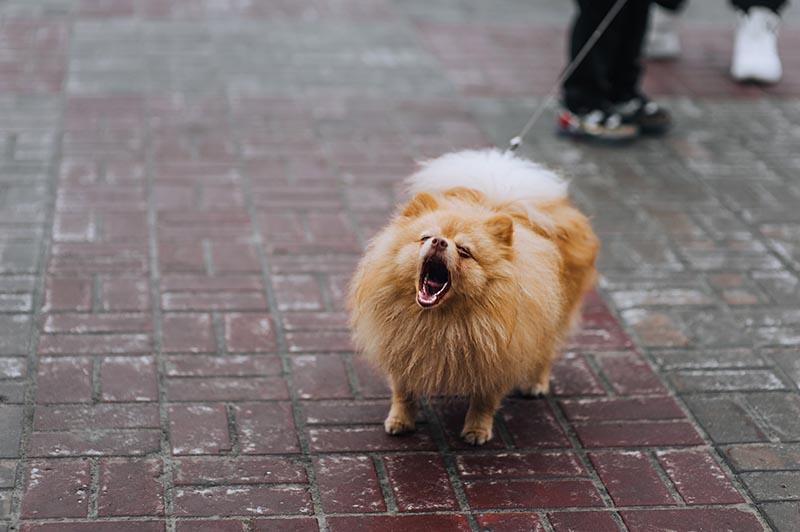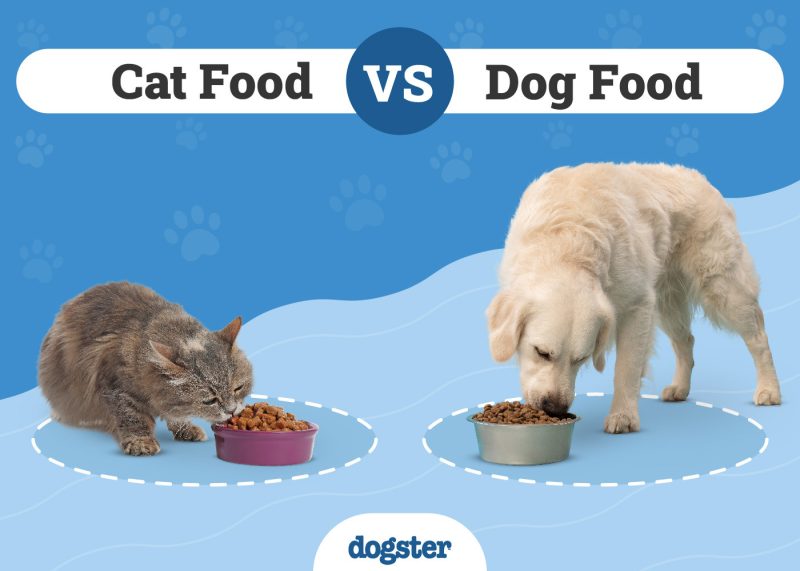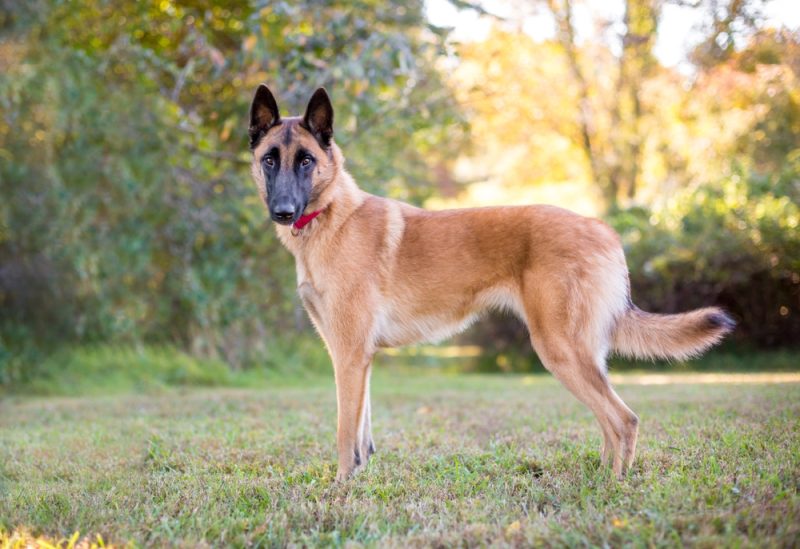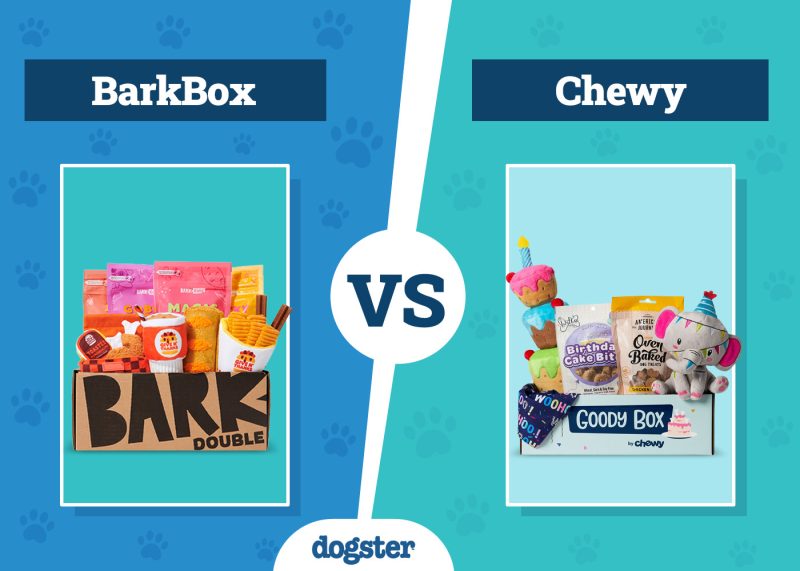In this article
View 4 More +Small dogs have earned a reputation for being full of personality and charm. However, they can sometimes exhibit less-than-ideal behaviors that seem to stem from their size. This phenomenon is often called “small dog syndrome.” Read on as we delve into what exactly this behavior issue is, its signs and causes, and most importantly, how to address and stop it.

What Is Small Dog Syndrome?
Small dog syndrome is a term used to describe specific behaviors commonly exhibited by small breeds. These typically involve the dog displaying an exaggerated sense of dominance, apparently compensating for their tiny stature. While it’s not exclusive to small or miniature breeds, it’s more commonly described in certain of these individuals, likely due to the juxtaposition of their small size and large personality!


What Are the Signs of Small Dog Syndrome?
Identifying small dog syndrome entails recognizing certain behaviors. Here are common signs to watch out for:
Aggressiveness
Small dogs with this syndrome may show aggression toward larger dogs or people. This can manifest as barking, growling, or even snapping.
Excessive Barking
Constant barking, especially in response to minor stimuli, can be a sign of small dog syndrome. This behavior is often a way for the dog to assert dominance or seek attention.

Attention-Seeking Behavior
Dogs with small dog syndrome may demand constant attention from their owners. They may become clingy, always wanting to be held or sit on their owner’s lap.
Jumping and Nipping
Some small dogs may exhibit jumping and nipping behavior as a way to assert themselves or get their way.

What Are the Causes of Small Dog Syndrome?

Small dog syndrome can stem from various factors, though their contributions are often intertwined in the development of this behavioral pattern. One significant factor is the behavior of the owners themselves. Due to their size and adorable demeanor, small dogs often receive different treatment compared to large breeds. Owners may unknowingly reinforce undesirable behaviors by allowing their tiny dog to get away with actions that they wouldn’t tolerate in a big dog. For example, picking up a small dog whenever they bark or growl may inadvertently encourage these behaviors as a means of seeking attention or asserting dominance.
Moreover, the environment in which the dog is raised plays a crucial role. Lack of proper socialization during the critical early months of a pup’s life can lead to fear or aggression toward other animals or people. Small dogs may not have as many opportunities for socialization as large breeds, particularly if they’re constantly carried or sheltered by their owners. Without exposure to different situations and stimuli, they may develop anxiety or defensive behaviors, contributing to the manifestation of the syndrome.
Spoiling is another common factor that can exacerbate small dog syndrome. Owners may indulge their small dogs with excessive attention, treats, or leniency, as their size makes such things easier and cheaper to do. However, this overindulgence can lead to the dog having unwanted behavior, reinforced by such treatment. Lack of consistent discipline and boundaries can further reinforce these negative behaviors, as the dog learns that there are no consequences for their actions.
Genetics may play a role in predisposing a breed to the specific behavioral traits associated with small dog syndrome. While genetics alone does not determine behavior, certain breeds may have inherited tendencies toward assertiveness, stubbornness, or territorial behavior. Understanding the breed characteristics and temperament of your small dog can help you anticipate potential challenges and tailor your training approach accordingly.

How Do I Get Rid of Small Dog Syndrome?
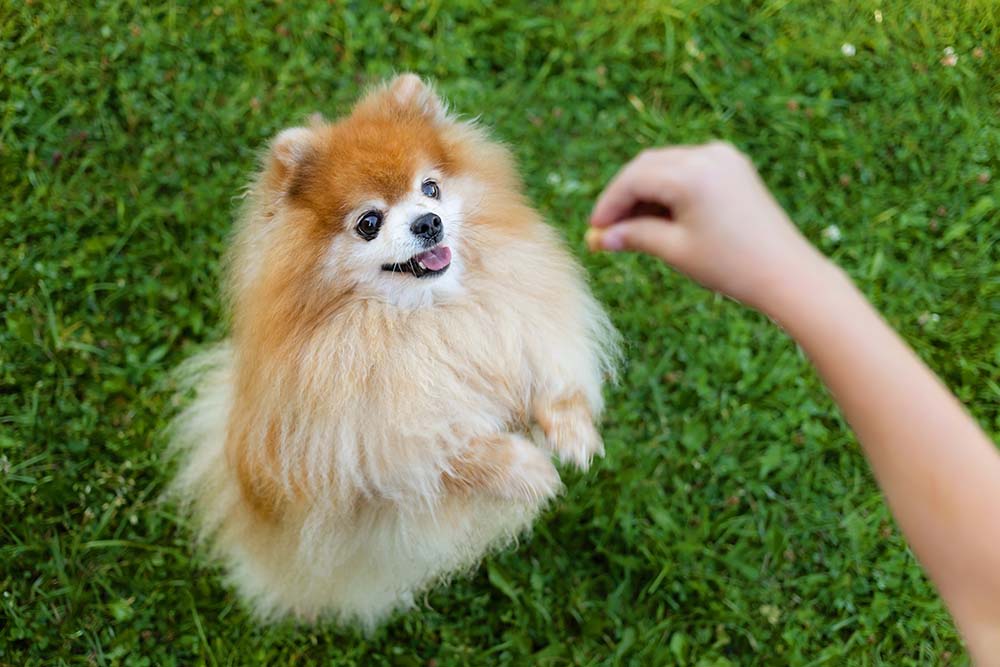
- Consistent training is vital to overcome small dog syndrome. For example, you should strongly consider enrolling your little pup in obedience classes or seeking guidance from a professional trainer. Through regular sessions, you can teach your pup basic commands and proper behavior. However, since repetition and patience are essential, make sure to also practice these commands consistently at home.
- Positive reinforcement entails using treats, praise, and affection to reward good behavior and gently discourage unwanted actions. By focusing on what they do right, you can encourage positive habits while building a stronger bond with your pet.
- Early socialization is crucial for all dogs, not just small ones. Introduce your pup to various environments, people, and animals from an early age. Gradually expose them to new experiences, always monitoring their reactions and providing reassurance as needed. This helps build confidence and reduces fear-based aggression.
- Establish clear boundaries and rules for your dog’s behavior. Avoid giving in to demands for attention or treats when they display undesirable behaviors like excessive barking or jumping. Redirect their focus to more appropriate activities and consistently enforce these boundaries.
- Regular exercise and mental stimulation are essential for small dogs. Provide opportunities for physical activity and mental challenges through interactive toys, games, and agility exercises. This helps channel their energy positively and prevents boredom-induced behaviors.
- Be patient and persistent. Changing ingrained behaviors takes time, so celebrate small victories along the way. Stay committed to your training efforts, and provide a positive and supportive environment for your furry friend to thrive. With dedication and love, you can help your pet overcome small dog syndrome and enjoy a happy, balanced life together.

Frequently Asked Questions
Can Small Dog Syndrome Be Changed?
Yes, small dog syndrome can be managed and improved over time in many dogs with patience, consistent training, and proper socialization.
Are Certain Breeds More Prone to Small Dog Syndrome?
While any small breed can develop small dog syndrome, certain breeds may be more predisposed due to their temperament and genetics.

Is It Possible to Prevent Small Dog Syndrome?
Yes, early socialization, positive reinforcement training, and consistent discipline can help prevent the development of small dog syndrome.
Should I Seek Professional Help for My Dog’s Behavior?
If you’re having difficulty managing your dog’s behavior or if the behavior poses a safety risk, consider consulting with a professional dog trainer, behaviorist or veterinarian for personalized guidance.
If you need to speak with a vet but can't get to one, head over to PangoVet. It's our online service where you can talk to a vet online and get the advice you need for your pet — all at an affordable price!


Conclusion
Small dog syndrome is a common challenge and behavior issue for dog owners of small breeds, but it’s not insurmountable. With patience, consistency, and positive reinforcement, you can help your furry friend overcome this behavior and become a well-adjusted companion. By making the time to understand the signs and causes and taking proactive steps to address them, you can ensure a happy and harmonious relationship with your tiny ex-tyrant!
Read More:
- Evans Syndrome In Dogs: Causes, Signs & Treatments (Vet Answer)
- Rodent Ulcers in Dogs: Our Vet Explains Signs, Causes & Treatments
Featured Image Credit: Shchus, Shutterstock
